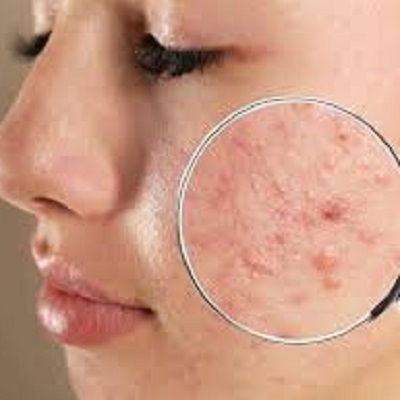The Truth About Activated Charcoal for Acne Treatment
Acne is one of the most common skin concerns, and people are constantly searching for the most effective treatments to combat it. One ingredient that has recently gained popularity is activated charcoal. Known for its purifying and detoxifying properties, activated charcoal is used in various skincare products to treat acne and other skin issues. But how effective is it really? In this article, we'll dive into the science behind activated charcoal for acne treatment and explore whether it's truly the best solution, especially if you're looking for the Best Acne Treatment Oman.

What is Activated Charcoal?
Activated charcoal is a fine black powder made from carbon-rich materials, such as coconut shells, wood, or peat, that have been exposed to high temperatures. This process increases its surface area and creates numerous small pores, making it highly absorbent. It works by attracting toxins and impurities like a magnet, pulling them out of the skin, which is why it's used in acne treatments.
How Does Activated Charcoal Work for Acne?
Absorbing Excess Oil
One of the primary reasons for acne is the excess production of oil, or sebum, in the skin. When sebum clogs pores, it leads to breakouts. Activated charcoal can help by absorbing this excess oil from the skin’s surface, leaving it less prone to clogging. This makes it a suitable ingredient for people with oily or combination skin types.
Detoxifying the Skin
Activated charcoal is also believed to have detoxifying properties. It binds with dirt, bacteria, and toxins, pulling them out of your pores. For those dealing with acne caused by environmental pollutants or bacteria, this property could be beneficial.
Is Activated Charcoal the Best Acne Treatment in Oman?
While activated charcoal has its merits, it's important to consider that acne treatment is not one-size-fits-all. Oman’s climate, characterized by hot and humid conditions, can contribute to increased oil production in the skin. In such cases, activated charcoal may help manage oiliness and prevent breakouts. However, it may not be the only solution.For people seeking the best acne treatment in Oman, it’s essential to consult with a dermatologist. A professional can recommend treatments that are customized to your skin type and the environmental factors in your region.
Pros of Using Activated Charcoal for Acne
Deep Cleansing Properties
Activated charcoal is an excellent deep cleanser. It helps to remove impurities from deep within the pores, making it effective for those who suffer from blackheads or congested skin.
Gentle on the Skin
Although activated charcoal is powerful, it's generally gentle on the skin. It’s less abrasive than some exfoliants and can be suitable for people with sensitive skin who still want an effective treatment for acne.
Cons of Using Activated Charcoal for Acne
Lack of Scientific Evidence
While there are many anecdotal reports of activated charcoal being effective for acne, there is limited scientific evidence to back these claims. The majority of studies supporting its use focus on its detoxifying properties rather than its effectiveness as an acne treatment.
Can Be Drying
For those with dry or sensitive skin, activated charcoal may cause further dryness or irritation. Since it absorbs oil, it can strip the skin of its natural moisture, leading to an overproduction of sebum, which could potentially worsen acne.
Combining Activated Charcoal with Other Treatments
To achieve the best results, activated charcoal is often combined with other acne-fighting ingredients like salicylic acid, tea tree oil, or benzoyl peroxide. Each of these ingredients targets acne in different ways, so using a multi-faceted approach can yield better outcomes. For instance, while activated charcoal absorbs oil and purifies the skin, salicylic acid can help exfoliate dead skin cells and unclog pores. Combining these two ingredients may offer a more comprehensive solution for acne treatment.
Who Should Use Activated Charcoal for Acne?
Activated charcoal is ideal for people with oily or combination skin, as it helps control oil production and reduces the likelihood of clogged pores. Those who live in hot and humid climates, like Oman, might also benefit from its oil-absorbing properties. However, if you have dry or sensitive skin, it’s essential to patch-test any products containing activated charcoal before incorporating them into your skincare routine.
How to Use Activated Charcoal in Your Skincare Routine
To get the best results from activated charcoal, it's important to use it correctly:
- Charcoal Face Mask: Apply once or twice a week to deeply cleanse the pores and remove impurities. Leave the mask on for 10-15 minutes and rinse with lukewarm water.
- Charcoal Cleanser: Use a daily charcoal cleanser to help manage oil production and keep your skin clear.
- Charcoal Spot Treatment: For those stubborn pimples, consider using a spot treatment containing activated charcoal to reduce inflammation and draw out toxins.
Final Thoughts: Is Activated Charcoal Effective?
While activated charcoal has gained attention as a trendy acne treatment, it may not be the ultimate solution for everyone. It’s a good option for those with oily or acne-prone skin who want a gentle, natural treatment. However, it’s important to combine it with other proven acne-fighting ingredients and consult with a skincare professional for personalized advice.
